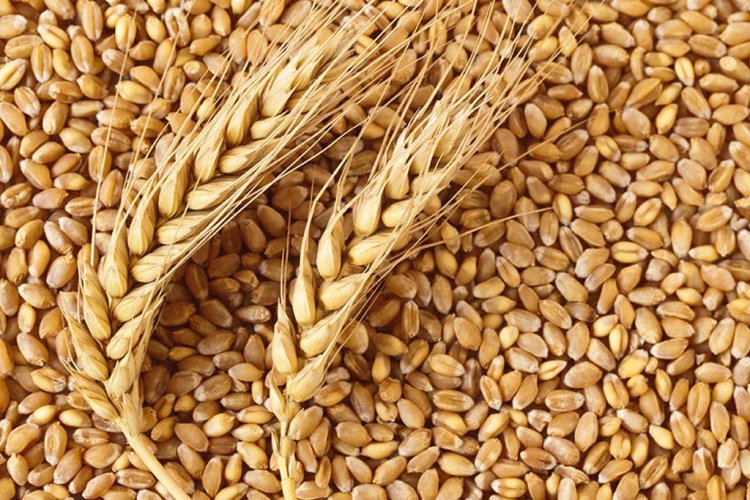Whatever steps the government is taking to control wheat prices, these are not yielding expected result. To control rising domestic price of wheat, the central government had decided to impose a stock limit on June 12, 2023, and directed wheat traders, flour mills and wheat product manufacturing companies to give regular stock information so that hoarding could be avoided.
Along with this, e-auction of wheat from the central pool is also being done by Food Corporation of India (FCI) from June 28 under the Open Market Sale Scheme (OMSS).
Despite this, the price of wheat has increased by Rs 250-300 per quintal since stock limit was imposed on wheat. At present, the average wholesale price of common wheat has reached around Rs 2,500-2,600 per quintal. The figures of the Department of Consumer Affairs, the Union Ministry of Consumer Affairs and Public Distribution, also confirm this.
According to government data, the all-India wholesale price of wheat on August 2 stood at Rs 2,632.71 per quintal, as against Rs 2,611.83 per quintal a month ago. There has been an increase of 6.17 per cent in the price in last one year when price of wheat was Rs 2,479.80 per quintal.
Talking to Rural Voice, Yogesh Dwivedi, CEO of Madhya Bharat Consortium of FPOs, said, “When the government imposed stock limit, the price of wheat was around Rs 2,200-2,300 per quintal which has now increased by 12-15 per cent to above Rs 2,500 per quintal.
The reason for this is low arrival of wheat in the market. Farmers have already sold their crop. Traders who have stocks are releasing wheat in small quantities in the market. They are hoarding their stocks and waiting for the prices to rise further to earn more profit.
Decisions like imposition of stock limit provide immediate relief but in the long run it has a negative impact on the market as big traders or big buyers like flour mills get scared and try to hide their stocks.
When the stock limit was imposed, a decrease of Rs 200-250 per quintal was seen in the price of wheat. At that time it was felt that this step of the government is right, but in the long run such decisions affect the sentiment of the market.”
According to Dwivedi, “The simple principle of the market is that whenever there is an attempt to control something, it has a negative effect in the long run and traders go on hoarding. Even though stock limits have been imposed and instructions have been given to give regular stock information, there are many ways to hoard.
"It is neither possible for the government system to monitor everyone nor can it be stopped completely. Unless there is a big stock coming in the market, there is no scope for much reduction in prices.”
On why the sale of wheat from the central pool through e-auction in the open market is not effective to bring down wheat prices, Dwivedi said that the quality of FCI wheat is not very good, except flour mills, other big buyers shy away from buying it. If FCI wheat is cheaper than the market, only then buyers turn towards it.
When the Russia-Ukraine war broke out in February last year, international prices started rising due to supply disruption, which had an impact on the domestic market as well.
In May, 2022, government banned export of wheat to control domestic prices. After this decision domestic prices remained stable for three to four months, but from September 2022, the price started increasing again and it crossed the level of Rs 3,000 per quintal in January 2023.
Price in retail reached Rs 3,800 per quintal. To control the price rise government decided to sell 50 lakh tonnes of wheat from the central pool under the Open Market Sale Scheme (OMSS) in January 2023 to private traders, flour mills and wheat product manufacturing companies.
Under OMSS, 35 lakh tonnes of wheat was sold from the central pool till March 31, 2023. Due to this move of the government, the wholesale price of wheat came down near the minimum support price (MSP) of Rs 2,125 per quintal for Rabi Marketing Season 2023-24.
Retail prices also declined to Rs 2,800 per quintal, but the prices of wheat products like flour and bread did not come down much. The rate at which the prices of flour, bread and biscuits had increased due to increase in the prices of wheat, the companies did not provide relief to the consumers by reducing the prices when the prices decreased.
Consumers did not get much relief in terms of price reduction of wheat products. On the other hand farmers suffered as prices of wheat reached around Rs 1,800 per quintal much below the MSP for new crop in March.
In the name of providing relief to the consumers from higher wheat prices, traders and processors of wheat took away all the benefits. The same is happening this time too and the traders are making profit by playing with the prices.




 Join the RuralVoice whatsapp group
Join the RuralVoice whatsapp group








































